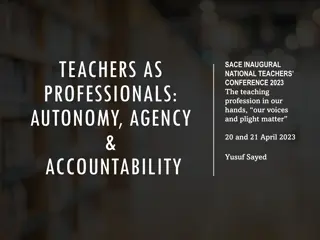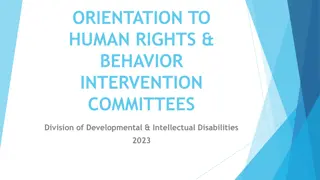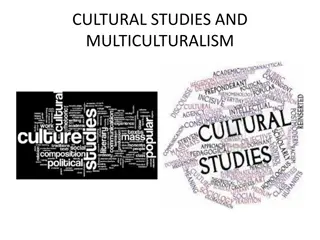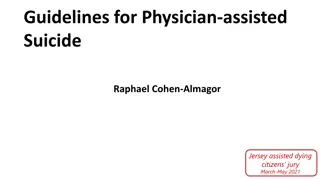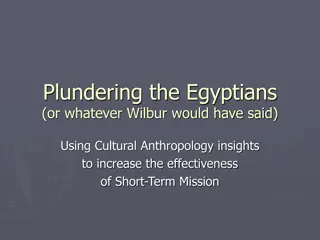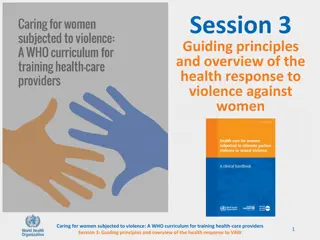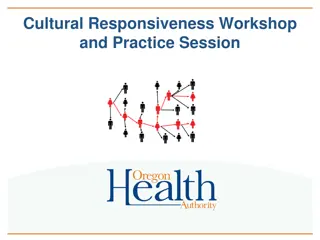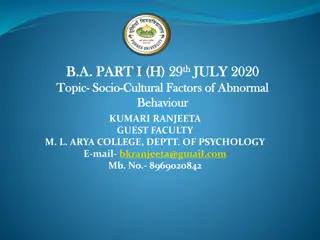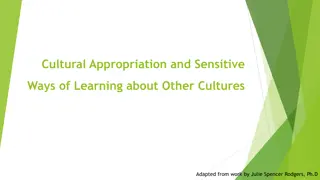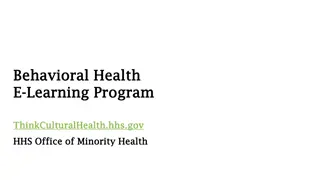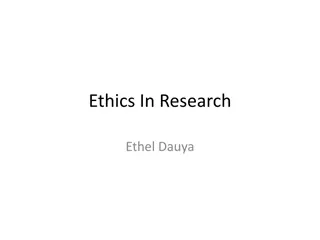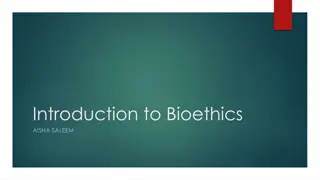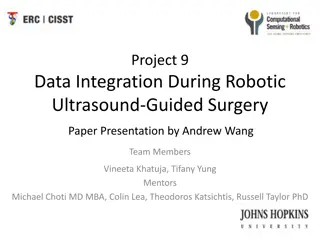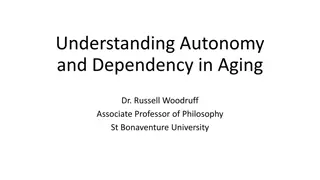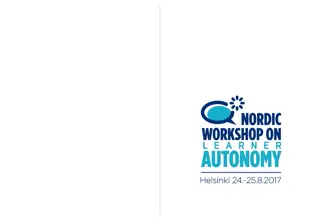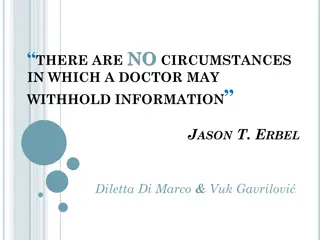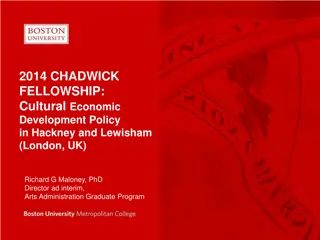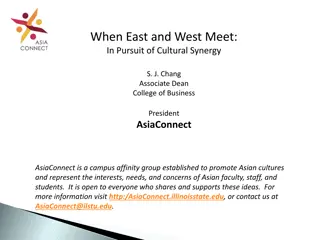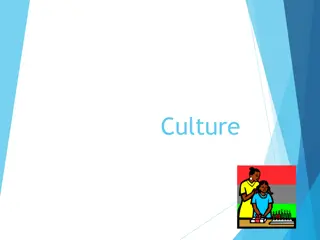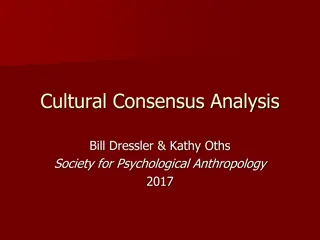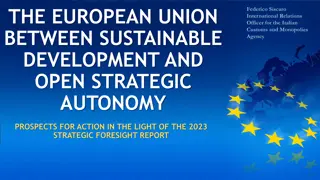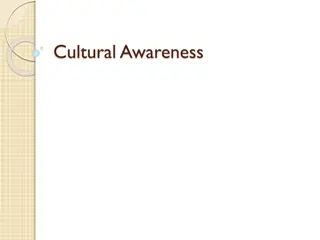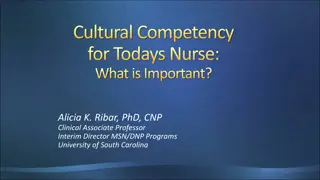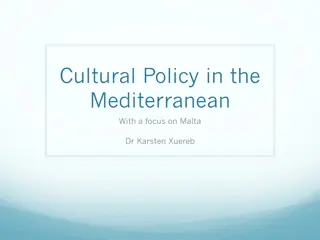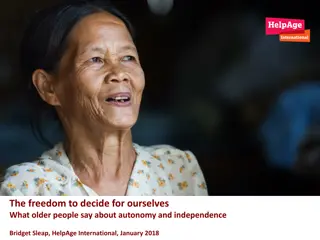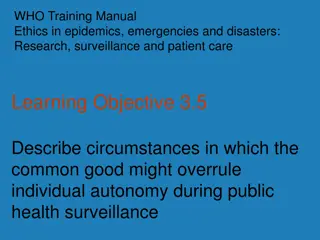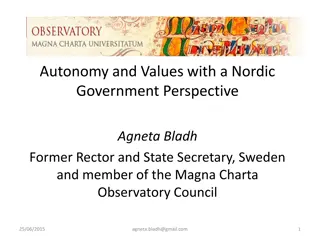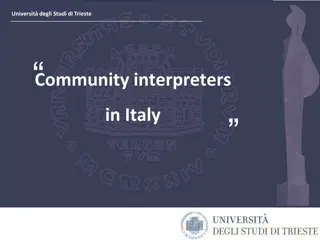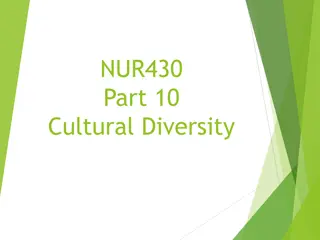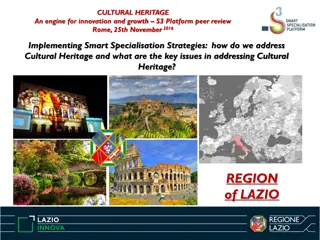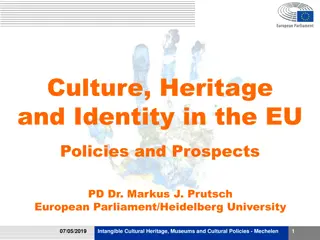Rescue Drone: Increasing Autonomy and Implementing Computer Vision
Focuses on developing a rescue drone with increased autonomy and implementing computer vision for advanced object detection. The team, consisting of Cody Campbell (Hardware Engineer), Alexandra Borgesen (Computer Engineer), Halil Yonter (Team Leader), Shawn Cho (Software Engineer), Peter Burchell (M
77 views • 44 slides
EU Strategic Autonomy in a Shifting Global Landscape
The European Union (EU) is strategically positioning itself for the future amidst rising global trends, such as the continued economic and geopolitical ascendancy of Asia, technological advancements, and geopolitical tensions. With initiatives like the Open Strategic Autonomy (OSA), the EU is focusi
1 views • 6 slides
Empowering Teachers: Autonomy, Agency, and Accountability in the Teaching Profession
The significance of teachers in education is highlighted, emphasizing autonomy, agency, and accountability. The role of teachers in student learning outcomes and the global agenda for teacher empowerment and quality education is discussed.
0 views • 37 slides
Navigating Decision Making and Autonomy in Adolescence
Explore the journey towards autonomy and decision-making in adolescence, including considerations of personal responsibility, influences on choices, and the impact of newfound responsibilities. Delve into practical examples, like evaluating job decisions and facing new responsibilities, to develop g
3 views • 9 slides
Ensuring Rights and Community Living for Medicaid-funded Home-Based Services
The Home and Community Based Services Settings Rule under Medicaid ensures individuals receiving services have full access to community living benefits, including autonomy, privacy, dignity, and choice in decision-making. The rule emphasizes person-centered planning, integration with the community,
0 views • 23 slides
Exploring Cultural Studies and Multiculturalism
Cultural studies is an interdisciplinary field that examines cultural differences while aiming to create a shared culture where diversity is respected. It challenges traditional views by studying all cultural productions and their societal contexts. Stuart Hall's work further delves into different p
0 views • 18 slides
Guidelines for Physician-Assisted Suicide: Ensuring Patient Autonomy and Safeguards
In the context of physician-assisted suicide, it is crucial to uphold patient autonomy while implementing strict safeguards to prevent abuse. Key considerations include competency, voluntariness, pressure-free decision-making, cooling-off periods, second opinions, and ensuring physician independence
3 views • 26 slides
Enhancing Short-Term Mission Effectiveness Through Cultural Anthropology Insights
Utilizing insights from cultural anthropology, this presentation delves into defining culture for short-term missions, viewing culture in successive levels, and key concepts such as cultural evolution and relativity. It explores the impact of culture on individuals and missions, emphasizing the impo
0 views • 16 slides
Session 3: Guiding Principles and Overview of Health Response to Violence Against Women
This session discusses the guiding principles for caring for women subjected to violence, focusing on respect for human rights and promotion of gender equality. It covers topics such as autonomy, freedom from fear and violence, and providing support that respects women's autonomy and dignity. Emphas
0 views • 26 slides
Exploring Cultural Responsiveness Through Workshops & Practice Sessions
This content provides a comprehensive guide on cultural responsiveness through workshops and practice sessions. It covers topics like cultural sensitivity, biases identification, and ways to reduce implicit biases. Resources, videos, and insights on cultural knowledge and awareness are shared to pro
0 views • 19 slides
Critics and Defenders in Multiculturalism Debate
Critics of multiculturalism argue that its focus on cultural inequalities diverts attention from socio-economic issues, while defenders like Kymlicka advocate for balancing cultural recognition with equal rights. Feminist critics raise concerns about cultural support for individual self-respect, par
0 views • 9 slides
Understanding Socio-Cultural Factors of Abnormal Behavior in Psychology
Exploring the impact of socio-cultural factors on abnormal behavior, this article delves into the influence of societal pressures, cultural norms, and economic status on mental health. The socio-cultural model emphasizes how societal criteria shape perceptions of abnormality, highlighting the role o
0 views • 7 slides
Understanding Cultural Appropriation and Respectful Cultural Learning
This content delves into the concept of cultural appropriation, offering definitions, examples, and ways to avoid it. It emphasizes the importance of cultural appreciation and outlines the differences between appropriation and appreciation, highlighting the power dynamics involved. Readers gain insi
1 views • 16 slides
Enhancing Cultural Competency in Behavioral Health Professionals
This e-learning program, developed by the HHS Office of Minority Health, focuses on improving cultural competence for behavioral health providers. It covers topics such as the connection between culture and behavioral health, the impact of cultural identity on client interactions, and strategies to
0 views • 9 slides
Understanding Ethics in Research: Principles and Major Issues
Ethics in research is crucial for ensuring the well-being of participants and upholding moral principles. Key aspects include beneficence, respect for autonomy, informed consent, and freedom from harm. Major ethical issues involve informed consent, beneficence, respect for anonymity and confidential
5 views • 18 slides
Exploring Bioethics: Principles and Applications
Ethics is the foundation of bioethics, a field that delves into the ethical considerations surrounding biological and medical practices. From understanding the essence of ethics to applying principles like respect for autonomy and justice, bioethics navigates complex decisions such as allocating a s
0 views • 12 slides
Louisiana Cultural Districts: Engaging Communities in Cultural Development
The Louisiana Cultural Districts program, under the Cultural Economy Initiative, aims to revitalize local communities by creating hubs of cultural activity. By building on cultural resources and promoting art and culture, the program benefits from increased occupancy, commerce, and community identit
2 views • 18 slides
Examination of Free Will and Individual Autonomy in "Whose Life is it Anyway?" by Brian Clark
The play "Whose Life is it Anyway?" by Brian Clark delves into the complex debate of free will and individual autonomy versus authority and bureaucracy in the context of healthcare. Ken Harrison, paralyzed from the neck down, challenges the medical profession and explores the limits of personal free
1 views • 14 slides
Robotic Ultrasound Integration for Surgeon Autonomy in Surgery
This paper presentation by Andrew Wang's team focuses on the data integration during robotic ultrasound-guided surgery. The project proposes the integration of live ultrasound feed and an image browser to view saved ultrasound images, along with the ability to construct 3D models of organs using pre
0 views • 22 slides
Understanding Citizenship Through Aristotle's Four Aspects
Aristotle's concept of citizenship involves balancing individual autonomy, participation in public affairs, state authority, and social relations. A 2004 survey explored different dimensions of citizenship like participation, autonomy, adherence to social order, and solidarity. The data from the sur
0 views • 15 slides
Understanding Autonomy and Dependency in Aging
This content explores three conceptions of aging - chronological, biological, and psychosocial aging - and their impact on autonomy and dependency in older adults. It discusses how individuals age differently biologically and psychologically and examines the significance of interpreting and respondi
0 views • 20 slides
Language Learner Autonomy Conference Programme Overview
The Language Learner Autonomy Conference spans three days full of insightful presentations, workshops, and discussions focusing on fostering learner autonomy in multilingual environments. The event includes diverse topics such as identity, social learning spaces, and empowering learners through embo
0 views • 14 slides
Ethical Considerations in Doctor-Patient Communication
The debate on whether a doctor should withhold information from a patient revolves around the principles of autonomy versus beneficence. Various ethical viewpoints such as utilitarianism, libertarianism, Kantian moral imperatives, and Aristotelianism are explored. While some argue for disclosing all
0 views • 25 slides
Cultural Economic Development Policy in Hackney and Lewisham: A Comparative Study
Building on previous research in Massachusetts, this project focuses on examining local government initiatives in cultural economic development in London boroughs of Lewisham and Hackney. The study explores the role of government in enhancing the cultural and creative industries, aiming to contribut
0 views • 7 slides
Bridging East and West: Cultivating Cultural Understanding
Exploring the complexities and nuances of cultural differences between the East and the West, this article delves into the challenges of cultural synergy and the importance of fostering multicultural understanding. Highlighting the need for effective communication and empathy across cultures, it pre
0 views • 18 slides
Understanding Cultural Diversity in Healthcare
The content explores the significance of cultural diversity in healthcare, emphasizing the increasing diversity of the population in the United States and the importance of cultural competence in nursing. It delves into cultural concepts, transcultural nursing, cultural context of health and caring,
0 views • 13 slides
Understanding Cultural Consensus Analysis in Psychological Anthropology
Explore the essence of Cultural Consensus Analysis (CCA) as a significant aspect of psychological anthropology. Through ethnographic work and structured techniques, CCA helps verify shared knowledge within cultural domains and enhance the comprehension of cultural models. The model and steps involve
0 views • 64 slides
Balancing Sustainable Development and Open Strategic Autonomy in the European Union
The European Union is navigating the challenge of promoting sustainable development while pursuing open strategic autonomy. President von der Leyen's leadership has driven ambitious sustainability policies like the European Green Deal. The 2023 Strategic Foresight Report emphasizes the intertwined n
0 views • 7 slides
Understanding Cultural Awareness and Diversity in the United States
Explore the significance of cultural awareness, including definitions of culture, cultural groups, and subcultures. Learn about the diversity in the United States based on national origins, beliefs, customs, and shared characteristics. Discover how to interact positively with individuals from differ
0 views • 37 slides
Development and Application of Cultural Policy Typology for Arts and Culture
This research focuses on presenting a cultural policy typology based on goal variation and examining its application in a U.S. state art/cultural agency, specifically the Massachusetts Cultural Council. The study delves into the policy goals of the council and highlights the need for a specialized c
0 views • 16 slides
Understanding Cultural Competency in Nursing Today
Explore the importance of cultural competency for nurses today, encompassing the definition of culture, cultural competence, Leininger's Culture Care Theory, and the significance of cultural understanding in nursing. The presentation delves into the role of nurses in promoting health across diverse
0 views • 14 slides
Exploring Cultural Policy in the Mediterranean with a Focus on Malta
Delve into the intricate web of cultural relations in the Mediterranean region, centered around Malta. From historical and political insights to postcolonial influences and the role of cultural policy, this exploration sheds light on the complexities and nuances shaping the cultural landscape. Disco
0 views • 23 slides
Perspectives on Autonomy and Independence in Older Age
Understanding the perspectives on autonomy and independence in older age, as shared by individuals from 24 countries through a consultation conducted by various organizations. Older people express the importance of making their own decisions, the impact of health on independence, challenges in maint
0 views • 13 slides
Balancing Individual Autonomy and Public Health in Surveillance
Public health measures such as surveillance, notification, mandatory testing, and isolation may conflict with individual autonomy. Respecting autonomy is crucial for promoting well-being, but there are situations where overriding individual autonomy is necessary for the common good of society during
0 views • 15 slides
Nordic Government Perspective on Autonomy and Values in Higher Education
Agneta Bladh, a former Rector and State Secretary in Sweden, discusses the importance of autonomy and values in the higher education systems of Nordic countries. She explores the role of the state as a guardian, different types of autonomy, restrictions, arguments for and against larger autonomy, an
0 views • 13 slides
Community Interpreting and Cultural Mediation in Italy: Insights from the University of Trieste
University of Trieste sheds light on the roles and qualifications of cultural mediators in Italy. The profession, categorized into linguistic and cultural mediation, plays a vital role in facilitating relationships between authorities and foreign residents, promoting integration, and dismantling lan
0 views • 9 slides
Understanding the Art Bonus Tax Credit for Cultural Support
The Art Bonus tax credit in Italy encourages individuals and businesses to support cultural heritage through charitable donations, providing a tax credit of 65%. This initiative aims to not only fund cultural institutions but also strengthen the bond between citizens and their heritage, driving soci
0 views • 10 slides
Understanding Cultural Diversity in Nursing Education
Explore essential concepts in transcultural nursing, including Leininger's Transcultural Nursing Theory and other models. Learn about cross-cultural nursing, cultural competence, diversity in nursing practice, and key terms like cultural imposition and acculturation. Enhance your cultural competence
0 views • 32 slides
Cultural Heritage as an Engine for Innovation and Growth in the Region of Lazio
Discussing the significance of cultural heritage in driving innovation and growth in the Region of Lazio, this report highlights the key elements and issues related to smart specialization strategies. It emphasizes the economic impact of tourism and cultural heritage in terms of enterprises, value a
0 views • 19 slides
Cultural Heritage and Identity in EU Policies
Delve into the significance of cultural heritage and identity in European Union policies through a presentation discussing the evolution of heritage, European identity concepts, and EU heritage policies since the 1970s. Explore the intertwined nature of cultural heritage with European integration an
0 views • 11 slides


